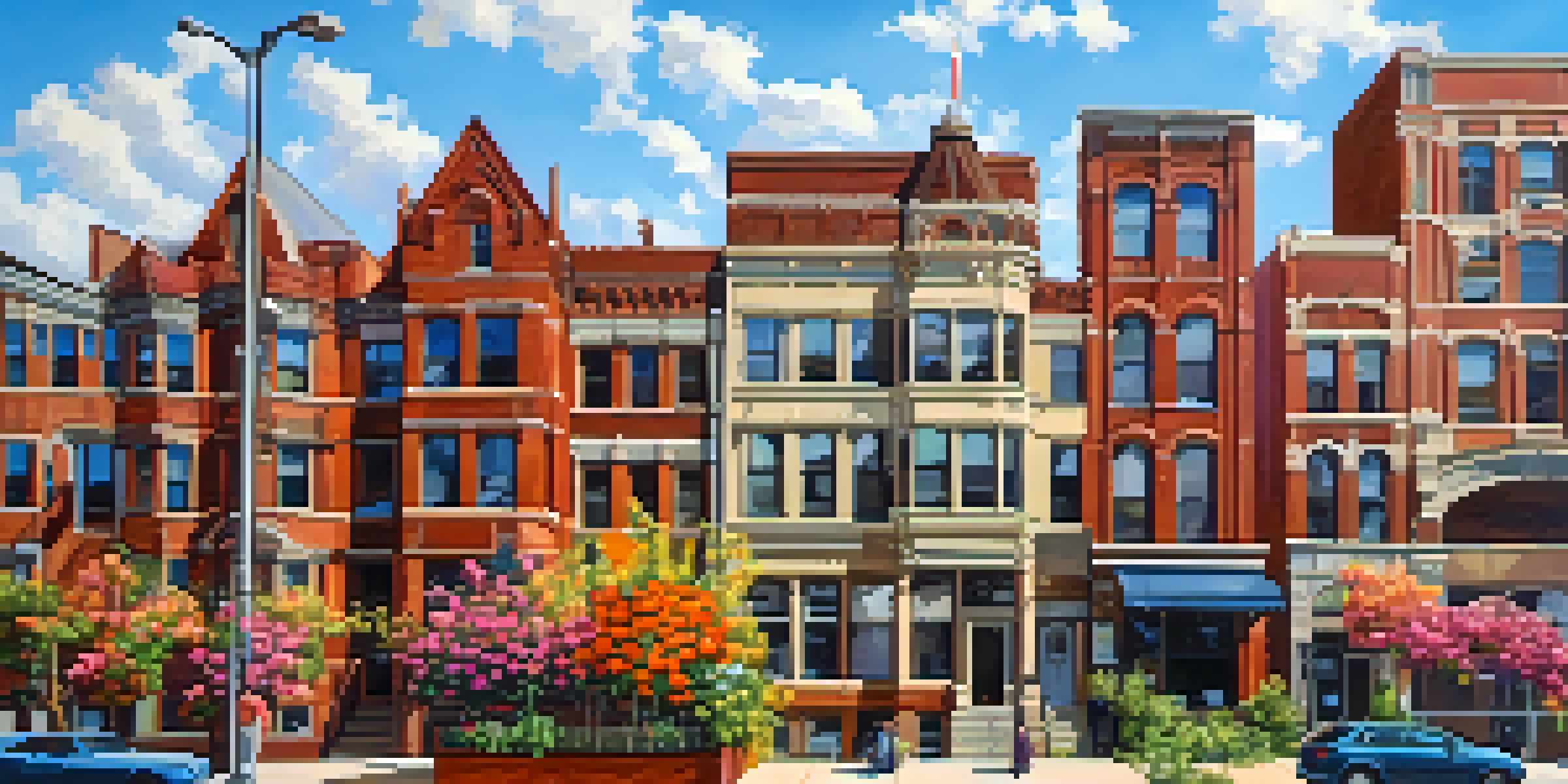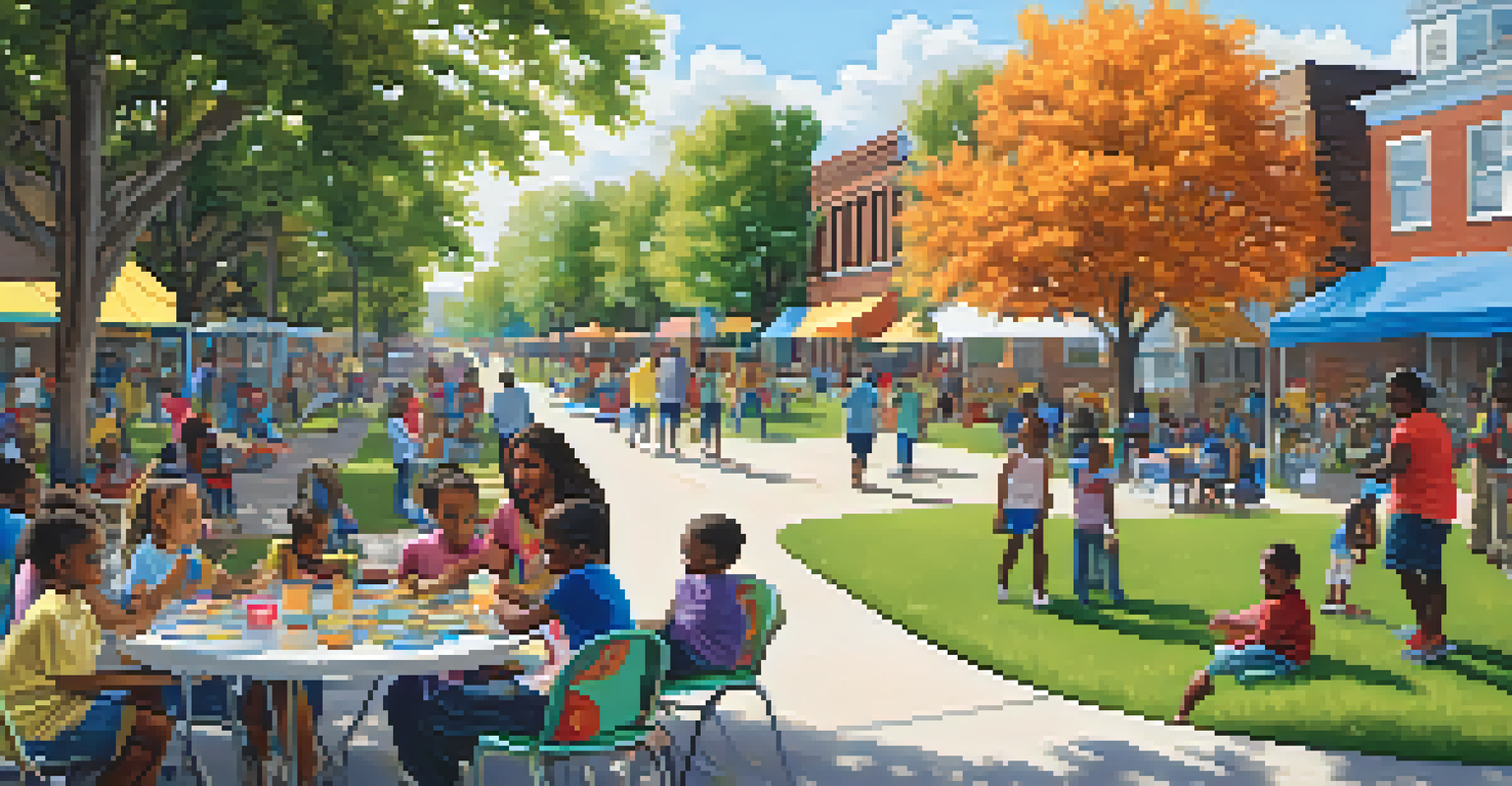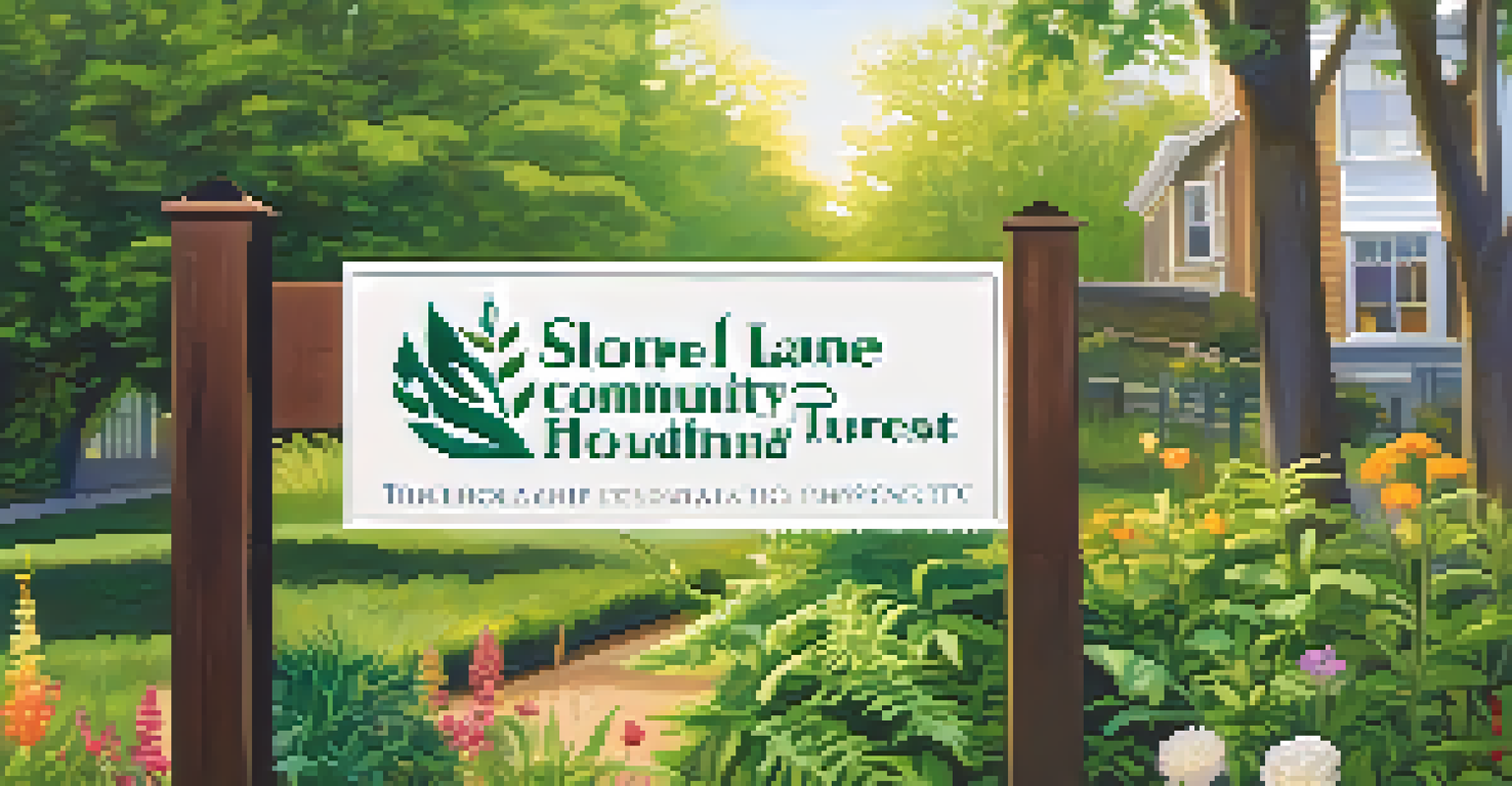The Rise of Affordable Housing Initiatives in Detroit

Understanding the Affordable Housing Crisis in Detroit
Detroit has faced significant challenges in providing affordable housing, particularly after the economic downturn in 2008. Many residents found themselves struggling with rising rents and stagnant wages, leading to an increased demand for affordable options. This crisis has made it clear that innovative solutions are needed to ensure everyone has a place to call home.
Housing is absolutely essential to human flourishing. Without stable shelter, it all falls apart.
The city's population has fluctuated over the years, but the need for affordable housing remains strong. As neighborhoods gentrify, long-time residents often find themselves priced out of their homes. It’s crucial to understand how these dynamics affect the community and why affordable housing initiatives are more important than ever.
In response to these challenges, local organizations and government entities have begun to collaborate on various initiatives aimed at increasing affordable housing. These efforts are focused not just on building new homes, but also on preserving existing affordable units, ensuring that all residents can thrive in their city.
Key Initiatives Transforming Detroit's Housing Landscape
One of the most notable initiatives is the Detroit Affordable Housing Development and Preservation Program, which aims to create and maintain affordable housing across the city. By providing funding and resources to developers, the program encourages the construction of new affordable units while also rehabilitating older properties. This dual approach helps address both immediate needs and long-term sustainability.

Another significant project is the Home Repair Program, designed to assist low-income homeowners with essential repairs. By ensuring that families can maintain their homes without facing financial hardship, this initiative not only improves living conditions but also stabilizes neighborhoods. Home repairs can prevent further decline in property values and enhance community pride.
Affordable Housing Crisis in Detroit
Detroit faces a pressing need for affordable housing, exacerbated by economic challenges and gentrification.
Additionally, community land trusts are gaining traction in Detroit, offering a unique model for affordable housing. These trusts allow communities to collectively own land and ensure that housing remains affordable for future generations. This grassroots approach empowers residents and creates lasting change in the housing landscape.
The Role of Community Organizations in Housing Initiatives
Community organizations play a vital role in advocating for affordable housing in Detroit. They work tirelessly to raise awareness of housing issues and push for policy changes that benefit residents. These organizations often serve as a bridge between the community and local government, ensuring that the voices of those affected are heard.
The best way to protect our cities is to make sure they are affordable for everyone.
Through various programs and outreach efforts, these organizations provide support to families navigating the housing market. They offer resources like financial literacy workshops, tenant rights education, and assistance with securing housing. This comprehensive support helps empower individuals and families to make informed decisions.
Moreover, collaboration among these organizations fosters a sense of unity and shared purpose. By working together, they can pool resources, share knowledge, and tackle the affordable housing crisis more effectively. This collective effort is essential for creating sustainable solutions that truly meet the needs of Detroit's residents.
Government Policies Supporting Affordable Housing
Local government policies have evolved to prioritize affordable housing in recent years. Initiatives such as zoning reforms are making it easier for developers to build mixed-income communities. By allowing for a greater diversity of housing options, these policies help ensure that people from all walks of life can find a home in Detroit.
In addition to zoning reforms, the city has implemented various incentive programs for developers. These incentives encourage the creation of affordable units within new developments, balancing the economic interests of developers with the community's needs. It's a win-win situation that promotes growth while safeguarding affordability.
Successful Housing Initiatives
Community-driven programs and partnerships are effectively creating and preserving affordable housing options in the city.
Furthermore, efforts to streamline the permitting process have also been introduced, making it easier for projects to move forward. By reducing bureaucratic hurdles, the city is fostering a more responsive environment for affordable housing development. This progressive approach reflects a commitment to addressing the housing crisis head-on.
Challenges Faced in Implementing Housing Initiatives
Despite the positive momentum, challenges remain in implementing affordable housing initiatives. One major hurdle is securing adequate funding for projects, as competition for resources can be fierce. Local organizations and government must continually advocate for increased investment to keep these initiatives alive.
Another challenge is overcoming community resistance to new developments. Some residents may fear that new housing projects could change the character of their neighborhoods or lead to increased traffic. It’s essential to engage communities in the planning process, ensuring that their concerns are addressed and that they feel included in the solutions.
Lastly, the ongoing economic uncertainty can complicate affordable housing efforts. Fluctuations in the market can impact both funding availability and construction timelines. However, with determination and creative problem-solving, Detroit can navigate these challenges and continue making strides toward affordable housing.
Success Stories: Affordable Housing in Action
Several success stories illustrate the impact of affordable housing initiatives in Detroit. For example, the redevelopment of historic buildings into affordable apartments has not only preserved the city's architectural heritage but also provided much-needed housing. These projects often attract diverse residents and foster vibrant community connections.
Another inspiring example is the collaboration between local non-profits and government agencies to create supportive housing for vulnerable populations. These homes offer stability and resources for individuals who have experienced homelessness or face other challenges. Success in these initiatives demonstrates how targeted efforts can lead to meaningful change in people’s lives.
Future of Housing Looks Promising
Ongoing collaboration among stakeholders and a focus on sustainable practices are key to enhancing affordable housing in Detroit.
These stories are a testament to the power of community-driven solutions. By highlighting these successes, we can inspire further investment and involvement in affordable housing initiatives, encouraging others to contribute to Detroit's ongoing transformation.
Looking Ahead: The Future of Affordable Housing in Detroit
As Detroit continues to evolve, the future of affordable housing looks promising. Ongoing partnerships between government, community organizations, and developers are essential for sustaining progress. By fostering collaboration and open communication, stakeholders can ensure that the needs of residents are prioritized.
Emerging trends, such as the focus on sustainable and energy-efficient housing, also hold potential for the future. By integrating green building practices into affordable housing projects, the city can not only reduce utility costs for residents but also contribute to environmental sustainability. This holistic approach benefits both individuals and the community as a whole.

Ultimately, the rise of affordable housing initiatives in Detroit reflects a broader commitment to creating inclusive communities. While challenges remain, the collective efforts of residents, organizations, and government can pave the way for a future where everyone has access to safe, affordable housing. Together, they can build a brighter tomorrow for all.